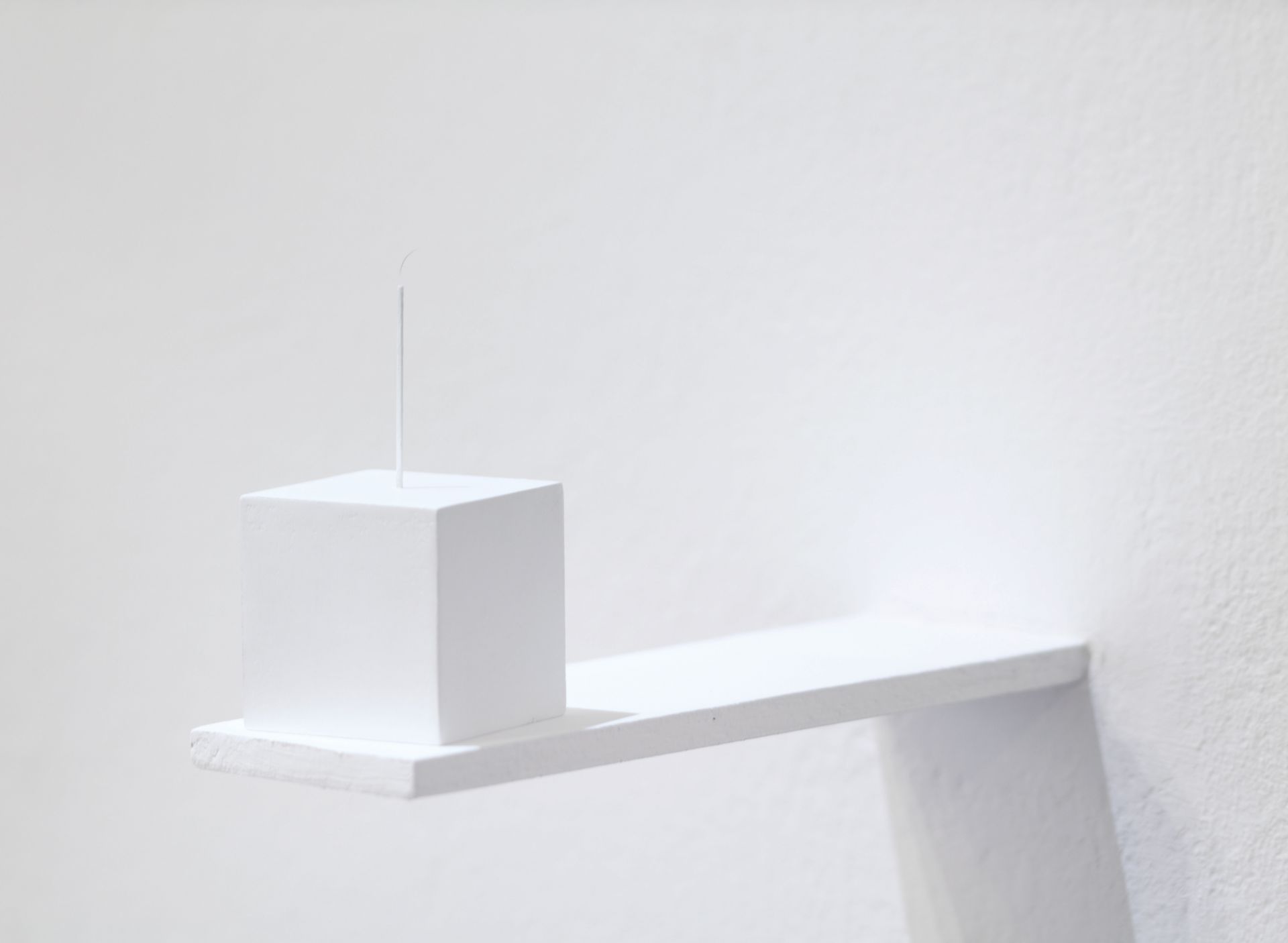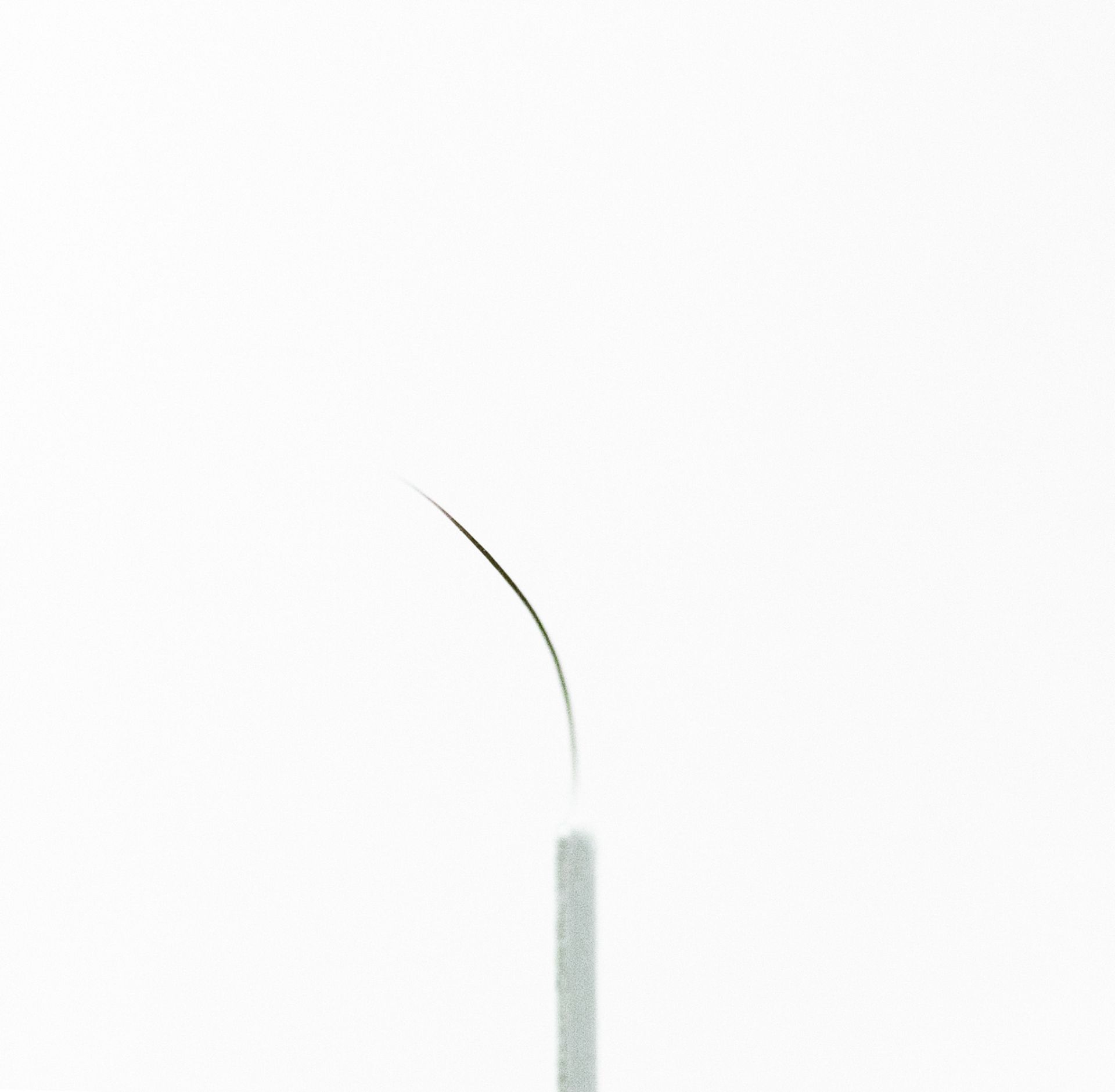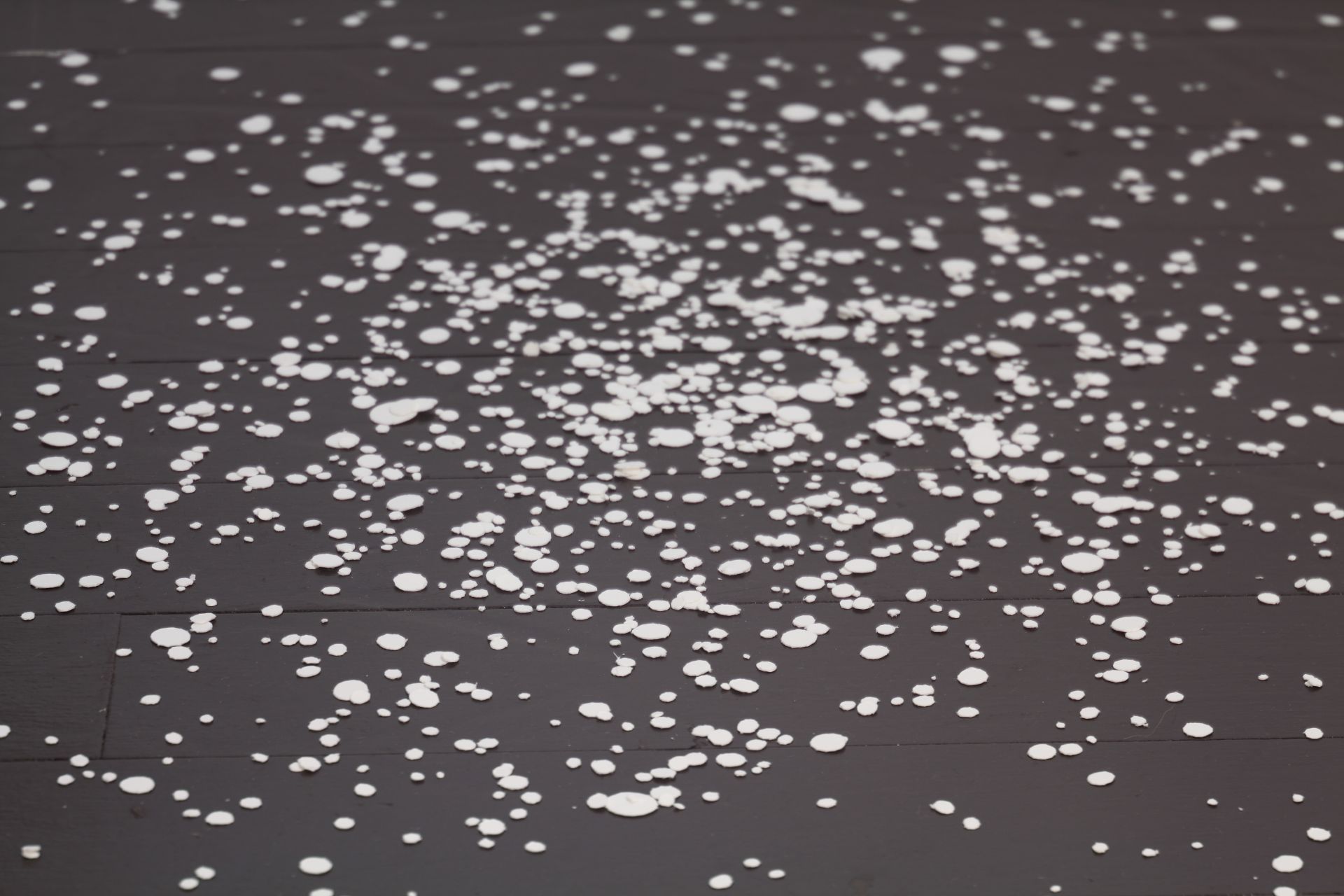Fleeting Few
2012
Pedestrian encounters in a suburban park in Tokyo.
Traces of transience.
I walk down to Zempukuji koen, the local park around a pond. It is late afternoon, I find a bench seat I think is least likely to attract mosquitos. Dogs circle and sniff, owners disentangle leads and chat. I can hear the gritty crunch of running shoes on the gravel path as joggers pass by. An elderly man near the pond's edge, knees bent and hands clasped together, swings an imaginary golf club at an imaginary golf ball. I watch with him as the invisible ball arches high up and over the pond.
Behind all of this human activity is the sound of countless cicadas calling out from surrounding trees. It is a pulsing, buzzing, electric flood of sound that can be heard everywhere in this neighbourhood at this time of year. To walk beneath the trees is to pass through zones of intensity—relatively subdued in places, elsewhere it surges down with the aggressive scream of a pachinko parlour.
One-yen sized holes dot the ground, inky-black voids. These are where cicadas tunneled a way out of the soil to start their brief lives above ground. I think of the kids I've seen in this park weaving between trees with butterfly nets, patient parents looking on. I think of the cicada shells they are searching for, the way they cling tenaciously to the underside of leaves. I imagine a leaf falling to the ground, dragging a cicada shell with it. I think of the way that weather and time will wear them both down; how their elements will scatter and be reclaimed by the soil. I think of this natural cycle that is always turning around us and within us.
A man on the bench beside me slaps at a mosquito on his leg. Time to leave.
These Fleeting Few is an exhibition that came out of a two month residency at Youkobo Art Space in Tokyo, Japan.
The Finding
Butterfly net passes through the wall,
opens to the sky.
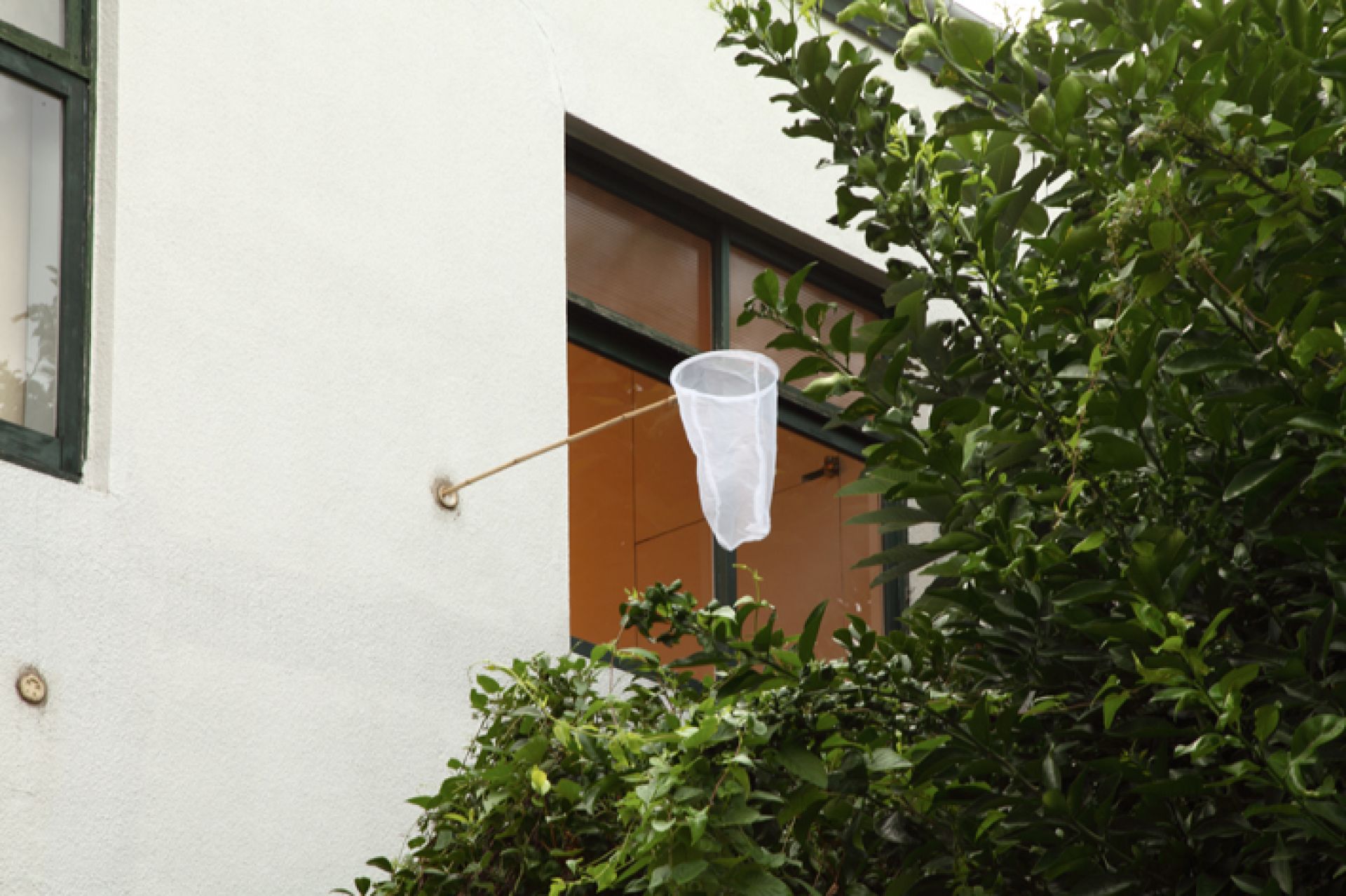
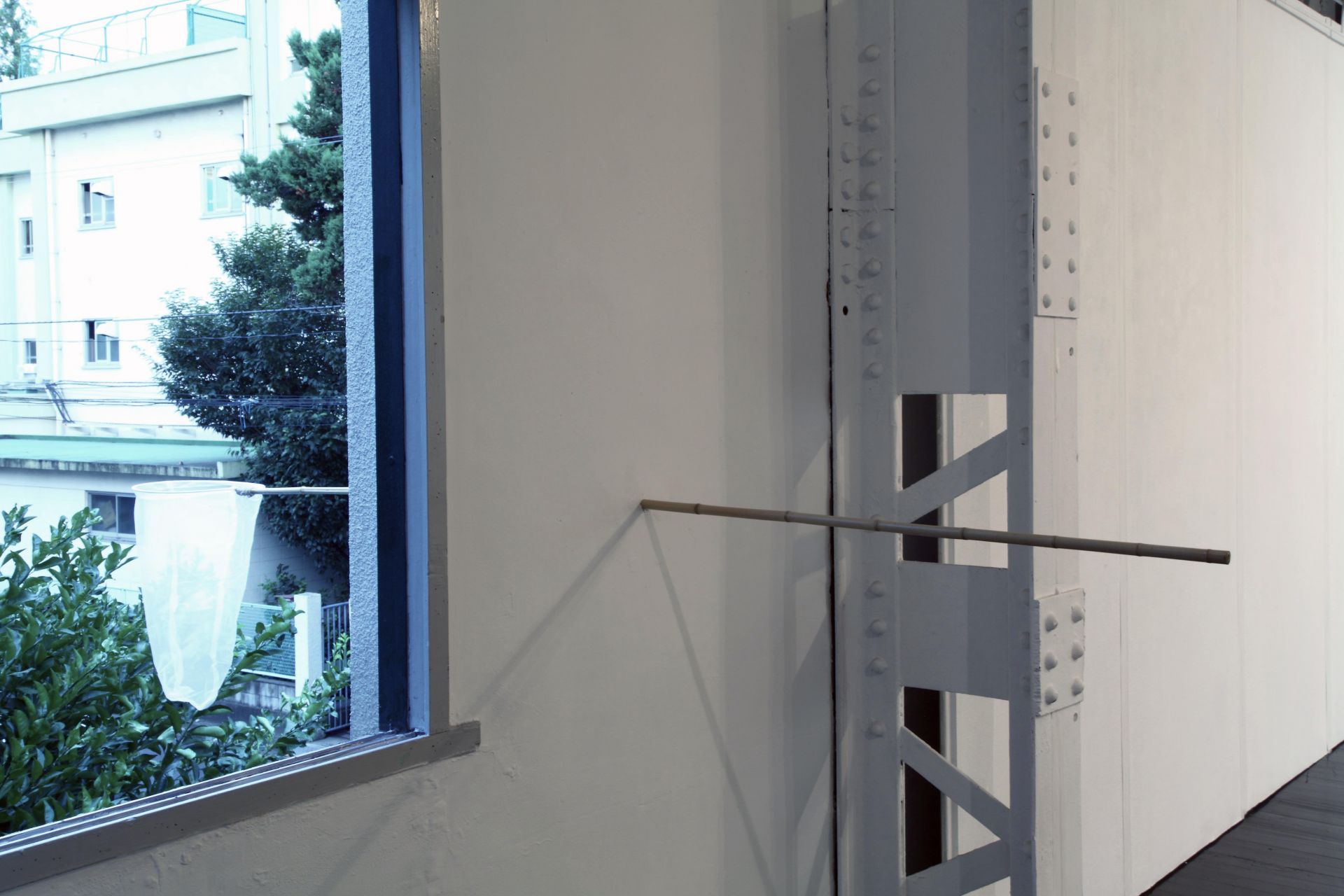
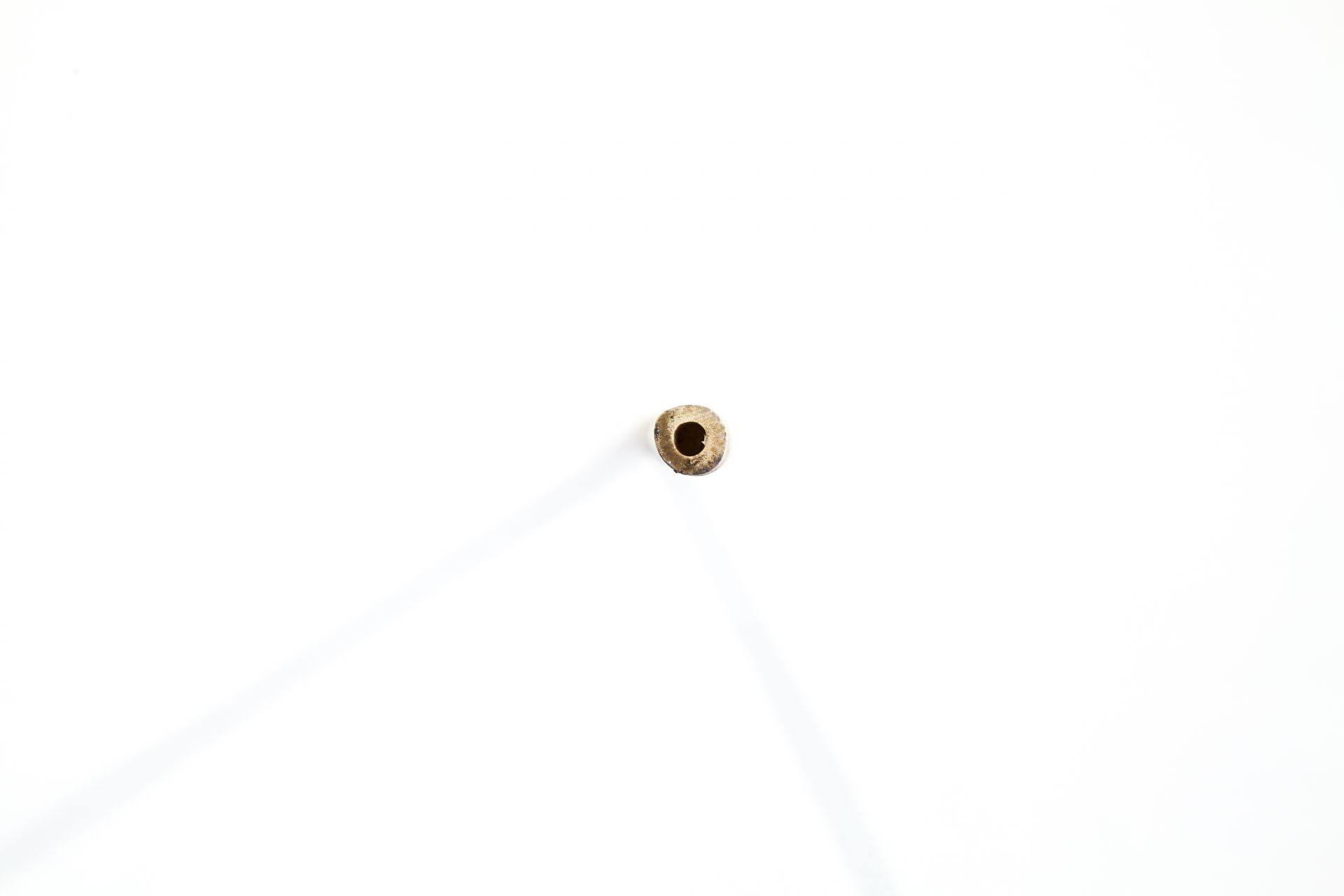
Silent Majority
Leaves suspended from the legs of cicada shells.
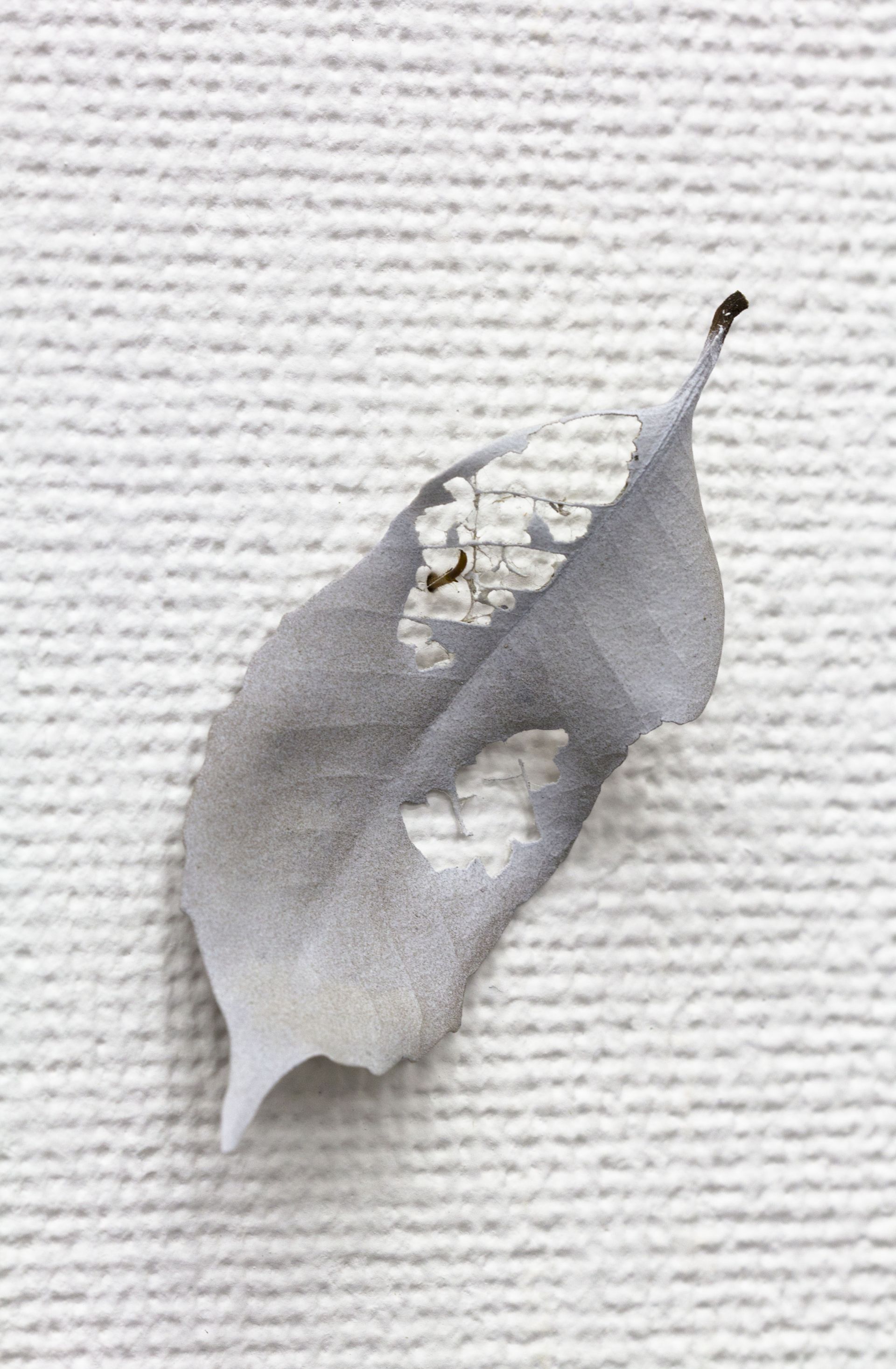
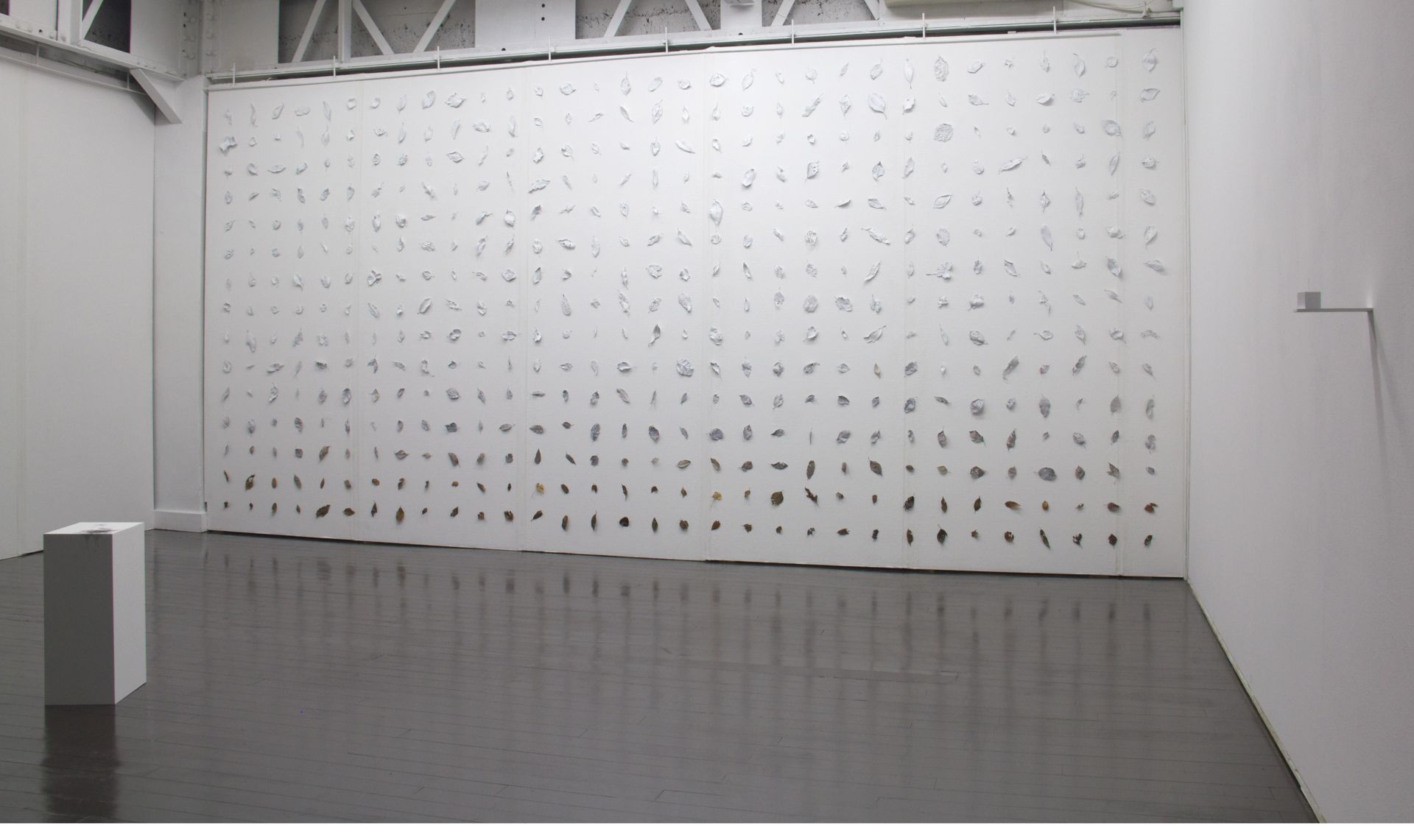
Spill
Pencil marks on paper and plinth.
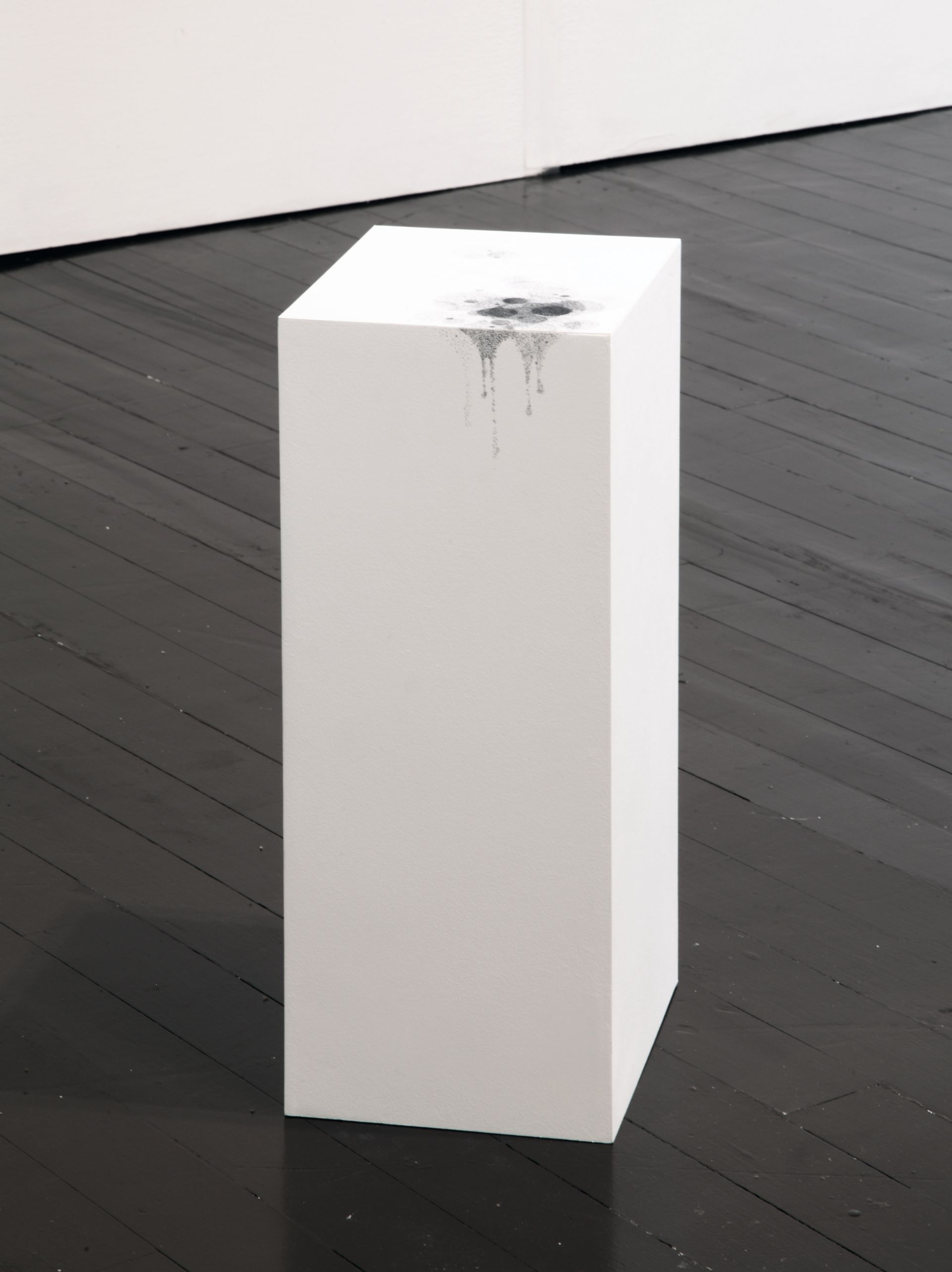
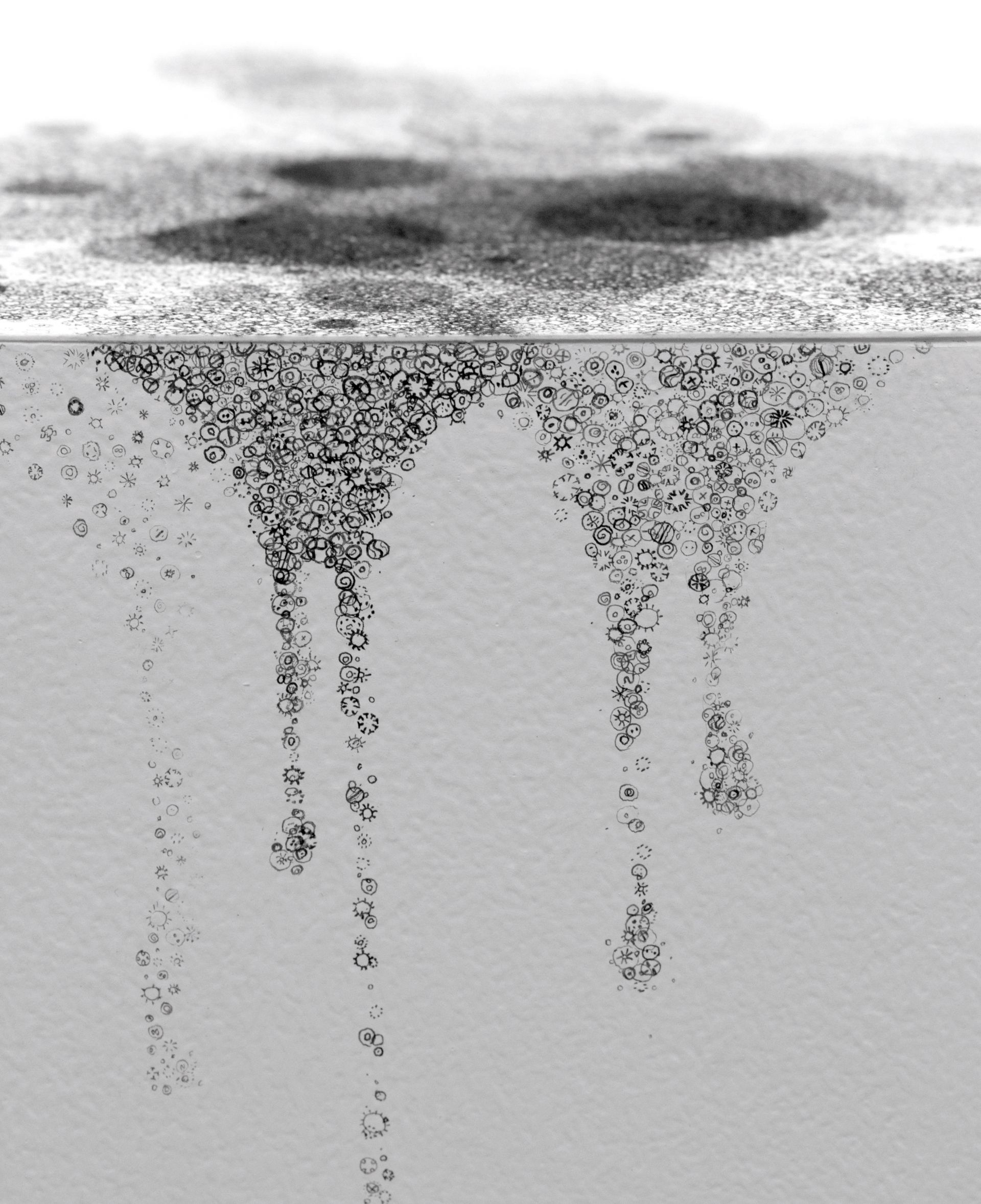
Blink
Eyelash balances on the tip of a second-hand removed from a watch.
